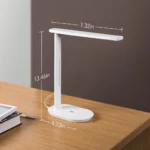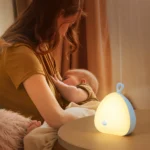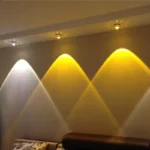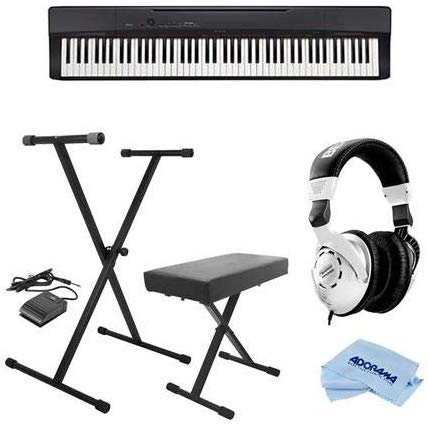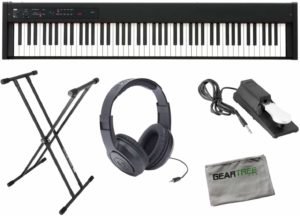While it certainly is not always the case, stage pianos are usually not considered by those who are beginners or even some intermediates. This is for a number of reasons.
Usually, stage pianos come in at the high end of cost when it comes to digital pianos as a whole, and someone who is just getting used to playing a piano or looking to play for the first time is most likely not looking to play live performances on stages or in front of audiences.
Quite simply, you do not need all the firepower that digital stage pianos bring to the table if you’re just jumping into the world of piano playing for the first time. If that happens to be you, we recommend you read our article aimed square at beginners: What is the Best Digital Piano for Beginners?
Also, it is important to note that most stage pianos actually do not come with built in speakers, as they’re often designed to be connected via amplification devices in a performance setting. This certainly makes things difficult for the user who wants to practice in the privacy of his or her own home.
Most of the time, people who are most interested in stage pianos are professional musicians, those who get paid to play instruments for a living and need something sturdy, dependable, and capable of standing up to some serious wear and tear by a traveling piano player.
Also, stage pianos appeal more to those who play inside churches or performance auditoriums and want to have the best of the best machinery available at their disposal. These machines appeal to musicians who like to work in a studio environment, as stage pianos are very high powered and work well with recording software and platforms such as MIDI.
Digital vs Acoustic Piano
Digital vs Acoustic PianoThere are many differences between digital and acoustic pianos and you should think carefully about that when you are considering purchasing either.
Digital pianos do offer a lot of great advantages comparison with acoustic pianos. You should bear in mind that’s a digital piano cannot recreate fully the tone or expression of an acoustic piano. This is the reason why some people still prefer an acoustic piano over at digital one.
One of the biggest advantages of digital pianos is that you will get many great features that you would not get with an acoustic piano. Some of these features include Basic drum patterns and auxiliary input.Another great are choosing a digital piano is that it is quite portable.
There are many different sizes of the digital piano to choose from so you can ensure that you will get a digital piano that suits your needs. Acoustic pianos, however, tend to be heavy and cumbersome. They are not at all portable and you will struggle to remove them from room to room without needing another person to help you. This makes digital pianos perfect for musicians who travel to concerts to make a living.
If you have never used a digital piano before you may be surprised to learn is that when you press the keys on the lower register you need to press the heavier that you do with the keys on the higher register. This is essentially mimics the feel of an acoustic piano.
A digital piano will often use synthesised recordings of high-quality concert instruments. For around the same price as a cheap acoustic piano, you can purchase a Digital piano that has been much better sound.
A digital piano is a perfect tool for a new pianist. They often come up with a learning program or feature that allows you to learn to play the piano using guides or similar method. One of the problems with having an acoustic piano is that you regularly need to tune it in order for it to perform perfectly in a concert scenario. Whilst digital piano still need tuning they will stay in tune and will require very little maintenance.
If you are a student or a new pianist, some people may have told you that acoustic piano is the only option for you. You will usually find that some teachers believe that acoustic pianos produced the purest sound and as a result are the best instruments to learn on. This is not the case and purchasing a digital piano can provide you with many more features than you could ever expect to have with an acoustic piano.
You should remember that and what you can afford for digital piano the better the quality of the instrument would be. This is the same case with acoustic piano. You should always purchase the best piano for your budget and try to avoid low quality cheaper instruments. Cheap instruments will not last as long and you will end up spending more money in the long run.More at https://www.brandreviewly.com/how-to-find-and-select-the-best-digital-stage-piano/.
Examples of Stage Pianos and Comparisons
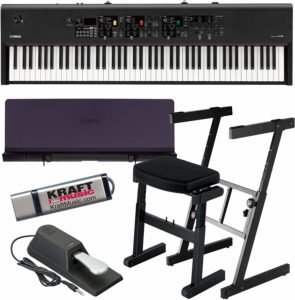
Casio has been producing great pianos for many years, and their Privia line is one of the most renowned and sought after pianos.
The Casio Privia PX 350 is an example of this. It’s a great stage piano on the lower end of the pricing spectrum (stage pianos can go for up to four and five thousand dollars in price).
The PX 350 has 88 keys with real feeling ebony and ivory tops. It comes with 128-note polyphony, an amazing 250 tones, and a massive 17 track, 5 song recording system.
It is supported by Casio’s Tri-Sensor Scaled Hammer Action II system and their AiR sound source, which might just be the best bang for your buck for the $700 price range.
A comparable piano to this would be the Kawai ES100. Kawai digital pianos are pretty well known, although I feel they are more recognized for their real acoustic and grand pianos.
Still, the ES100 is a great machine in the same price range, also having 88 keys and a comparable hammer action system (Advanced Hammer Action IV-F). However the ES100 is more of a standard stage piano in that it does not have nearly as many tones (19), but it does have a bit more polyphony (192 notes). It uses the Harmonic Imaging (HI) ,88-Key Piano Sampling sound source.
At the very high-end spectrum of stage pianos, there are some really amazing options, even though you should be prepared to spend a pretty penny.
There is the Yamaha CP4, which some claim is the best digital stage piano made by Yamaha. This machine features an astounding 45 grand piano sounds, 47 vintage electric pianos, and 341 other voices.
That collection is almost unheard of
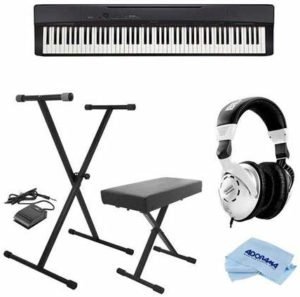
It has a beautiful hammer wooden key action with synthetic ivory tops, and weighs in at an unbelievably lightweight 38.5 pounds.
However, let’s not count out the Kurzweil Artis, which features a 9’ German grand piano sound to go with 255 other stage sounds. It has 128 notes polyphony, its own hammer weighted key action, an impressive FX engine to help you modify the sound, and sliders, switches and wheels to make up its programmable controller system.
The Roland RD-800 is another piano that falls into this discussion as well, as it comes with 88 keys, Roland’s best Progressive Hammer Action 4 system, the SuperNATURAL piano sound engine, and a whopping 1,113 tones!

